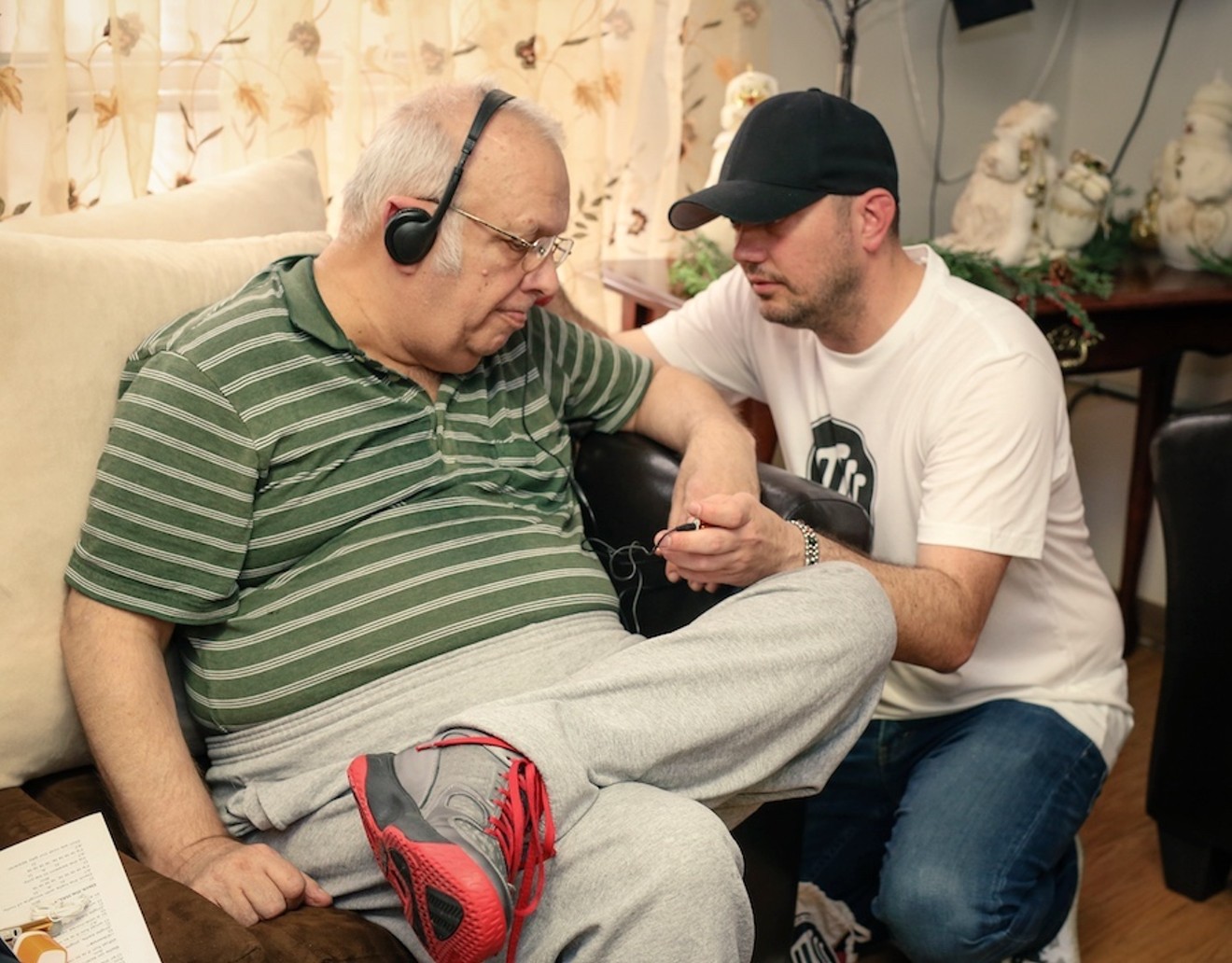Dan Cohen always believed that music could “open a back door” to the brain, but when he surveyed the more than 16,000 long-term care facilities in the U.S., he discovered that none utilized any form of music in its care. He decided to volunteer at a nursing home near his home in New York, where he worked with patients to create playlists of their favorite songs.
Inspired by positive feedback from the patients, Cohen tested the project on a larger scale and then launched Music & Memory in 2010. The nonprofit trains nursing home staff, caregivers and elder care professionals on how to create personalized playlists for people with cognitive disorders. These playlists enable Alzheimer’s patients and others to reconnect with their memories and the world without the use of antipsychotic medication. The care facilities that once shunned music began embracing the Music & Memory method, and Cohen’s program expanded as far south as the Lone Star State.
The program has paid dividends at the Austin State Supported Living Center, where staff members have seen an immediate increase in patient quality of life and a gradual increase in cognitive development.
“The individuals that participate in the program have shown to have better conversations with staff, are more engaged with active treatment and everyday activities,” habilitation therapist Dr. Michael Gayle says. Gayle’s center was one of the first to adapt Cohen’s program when Music & Memory launched a partnership with the state of Texas more than two years ago.Texas is the eighth fastest-improving state in the nation in its reduction of antipsychotic medications.
tweet this
The partnership between Music & Memory and Texas Health and Human Services is nearing the end of a four-stage process that began with 32 facilities adopting the nonprofit's method. By the end of next year, that number is expected to grow to 432.
Before Cohen joined forces with officials in Texas, a Dallas duo was hard at work using iPhones to help hundreds across the Metroplex.
Initially launched as a blog, Music is Our Weapon was started by music lovers who, like Cohen, believed that music could open doors that others thought only medicine could access.
Ashley Brightwell and JP Maloney wanted to aid Alzheimer’s and dementia patients, so they started giving iPods to local nursing homes, hospitals and even victims of human trafficking. However, the organization has refined and expanded its approach in the years since it moved from blog to full-blown nonprofit.
“Our newly revamped My Music Matters Program now uses smartphones and Spotify as the primary platform to provide music,” Brightwell says. “By equipping our caregivers with these tools, we are able to regularly collect data in order to further understand the power of music as medicine.”
At one point, Brightwell and Maloney reached out to Music & Memory, but they decided to forge their own path. While Cohen’s group relies on research, Music is Our Weapon began with an “emotion-based” approach, relying on grassroots support from musicians and music fans in Dallas and beyond.
Nevertheless, Texas is more than big enough for both organiations, and Music is Our Weapon’s newest endeavors show that there’s room for data and heart in the fight to reduce reliance on antipsychotic medication.
Furthermore, Brightwell knows neither group would be where it is without ample help and support from the Texas community. “Our support group of volunteers, musicians and the music industry has now turned into a community passionate about this movement,” he says.











